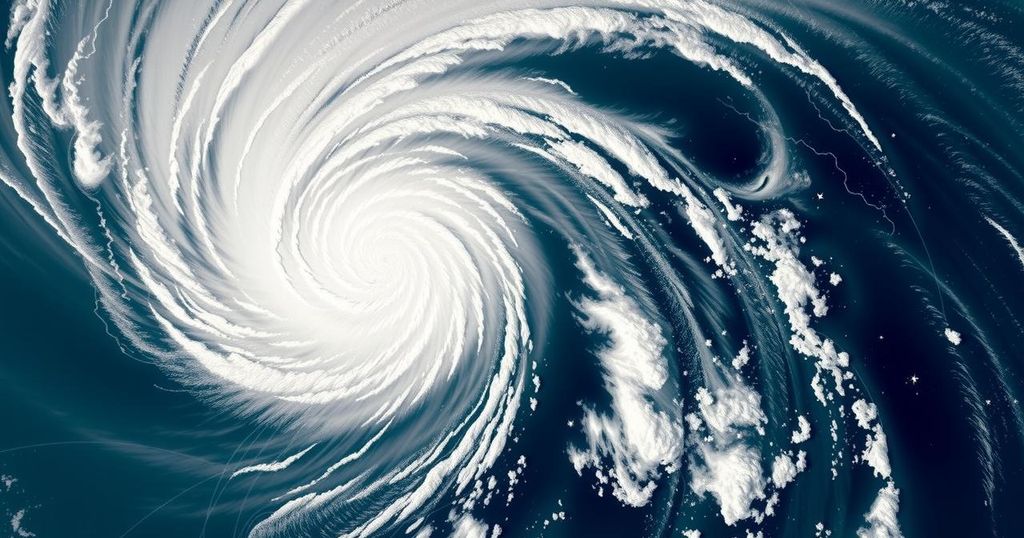Tropical Cyclone Chido Causes Major Devastation in Mayotte and Prepares to Strike Eastern Africa
Cyclone Chido has severely impacted Mayotte, causing extensive damage and prompting emergency responses. Winds exceeding 220 kilometers per hour have led to material destruction but no casualties reported yet. The cyclone poses imminent threats to neighboring regions, particularly Mozambique, where millions may be affected. Experts link rising cyclone intensity to climate change, raising concerns for vulnerable communities in Southern Africa.
Tropical Cyclone Chido has inflicted severe damage on the French territory of Mayotte in the Indian Ocean, with wind speeds exceeding 220 kilometers per hour. The cyclone has devastated the islands, which comprise a population of over 300,000 residents, uprooting metal roofs, causing extensive material loss, and leading to power outages. Thankfully, no casualties have been reported to date. Francois-Xavier Bieuville, the Prefect of Mayotte, described the event as the most destructive cyclone since 1934 and has urged residents to remain sheltered as emergency services work to provide aid.
The storm continues to threaten the nearby nation of Comoros, where authorities have issued the highest red alert and have taken measures to secure safety, including closing airports and government offices. In response to the devastation, French officials have mobilized emergency services, with reinforcements deployed from France and Reunion. Chido is forecasted to impact Mozambique next, with predictions that as many as 2.5 million individuals in Northern provinces may be affected, prompting preparations in Malawi and Zimbabwe for possible flooding and evacuations.
As the region enters cyclone season, the challenges posed by such natural disasters are exacerbated by climate change. Previous cyclones, such as Idai and Freddy, have wrought significant fatalities and humanitarian crises in Southern Africa. The potential for subsequent health crises related to waterborne diseases remains a concern as stagnant water may persist post-cyclone.
Climate change studies indicate that tropical cyclones are becoming increasingly severe, posing complex difficulties for impoverished nations in Southern Africa, who contribute minimally to the factors driving climate change yet find themselves at the forefront of its impacts.
Cyclone Chido has emerged as a significant severe weather event affecting Mayotte, a French territory. This region is currently classified as vulnerable during cyclone season, which spans from December to March. The impacts of previous cyclones, such as Idai and Freddy, serve as stark reminders of the deadly potential of these storms. Climate change has been identified as a contributing factor to the increasing intensity and frequency of such cyclones, leading to more severe humanitarian crises in regions that have limited resources for disaster recovery and resilience.
In summary, Tropical Cyclone Chido has caused unprecedented damage in Mayotte, triggering emergency responses and raising alarm in surrounding regions. The consequences of the cyclone extend beyond immediate destruction, threatening broader humanitarian challenges exacerbated by climate change. As Chido moves toward Mozambique and potentially affects millions, the ongoing situation highlights the urgent need for sustained disaster preparedness and effective response strategies in the wake of increasingly severe natural disasters.
Original Source: www.voanews.com



Post Comment